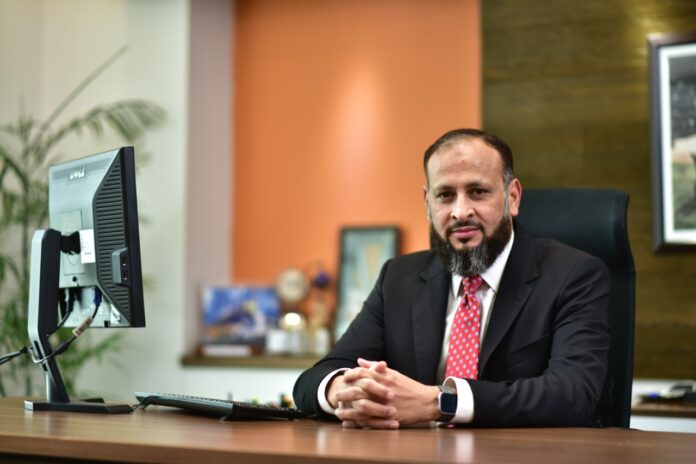KARACHI: K-Electric’s Chief Executive Moonis Alvi on Wednesday said that if the government had approved a new 700MW power plant back in 2016, Karachi’s power supply would have been better, as he apologised to people for the persistent load shedding in Karachi.
“In 2016, the power plant project had a setback due to technical reasons,” he said, explaining that the power utility company was asked to focus on power generation using the local variant of coal, whereas the “system” was designed for the use of imported coal.
“It takes two-and-a-half to three years to set up a new power plant, Alvi added.
He said that nonetheless, the company’s system had “improved” in the last three years.
Acknowledging the woes of Karachiites, he said that indeed, the city is facing prolonged load shedding as the demand for power “increases” in the current season.
“Even the exempted areas are facing power outages,” he noted, adding that the company also suffers losses due to load shedding in exempted areas.
The chief executive said however that “faults” must not be considered load shedding and that no power cuts took place between March 20 and May 28 when a lockdown was in place.
He said that due to the coronavirus, a lot of meter readings were not done.
Alvi said that the company has 1,800 feeders and 26,000 transformers installed. He said that the existing copper wire infrastructure is being replaced across the country with aluminium wiring and the copper wires sold were shown in the company books.
Talking about the cable operators strike against the power utility, he claimed that the company had not cut any cable in the last 15-18 days. This is in stark contrast to claims by cable operators a day earlier where they said cable wires where being “constantly” cut by the power utility.
Shedding light on KE’s arrears, Alvi said that the Sindh and federal government owed KE a sum of Rs237 billion, while the water board had to pay KE over Rs30 billion.
Meanwhile, talking about the company’s loans he said that KE owed Rs160 billion to several organisations, and that it had taken a loan of Rs85 billion from banks. “K-Electric has sold electricity worth Rs280 billion in 2019,” Alvi added.





A Corporate clerk with no knowledge of electrical issue. The most incompetent person supported by NEPRA and board of directors including Government nominated Directors.
Before talking this rubbish pick up the agreement that you have made with pakistan Govt… read it carefully…….than spit up…..
that you have stoled above 1200 billion rupees copper..from karachi…where is that money..
U people are taking bribes always
KE management is a THIEF. They should be severely punished and their properties confiscated. Their crime against the citizens are excessive billing and excessive load shedding.
Looting and plundering billion of rupees every month from the poor and hand to mouth citizens of Karachi is their favorite profession, and then they play their favorite politics while sitting in Their Air-conditioned rooms, hang them in streets, so that nobody can dare to cheat this nation
All rubbish what is said by CEO Alvi.
The team consist of people from finance ,accounts,administration and mostly on non technical heads. They have no idea that how a power utility is run. The KE can not improve its condition until this team is here. China was interested in taking it over but this team some how managed that in the end they have to refuse.
Nepra is equally responsible for this situation in karachi.
God only can help us to get rid of this team.
عوام کی خون پسینے کی کمائی لوٹنے اور قتل کرنے والی قاتل، چور، ڈاکو کے الیکٹرک۔
تین مہینے کا بل ایک ساتھ بھیجنے کے بعد یونٹ کو مہنگا کرنا سر عام چوری کرنا ان غیر انسانی تربیت اور نا اہلی کا منہ بولتا ثبوت ہے